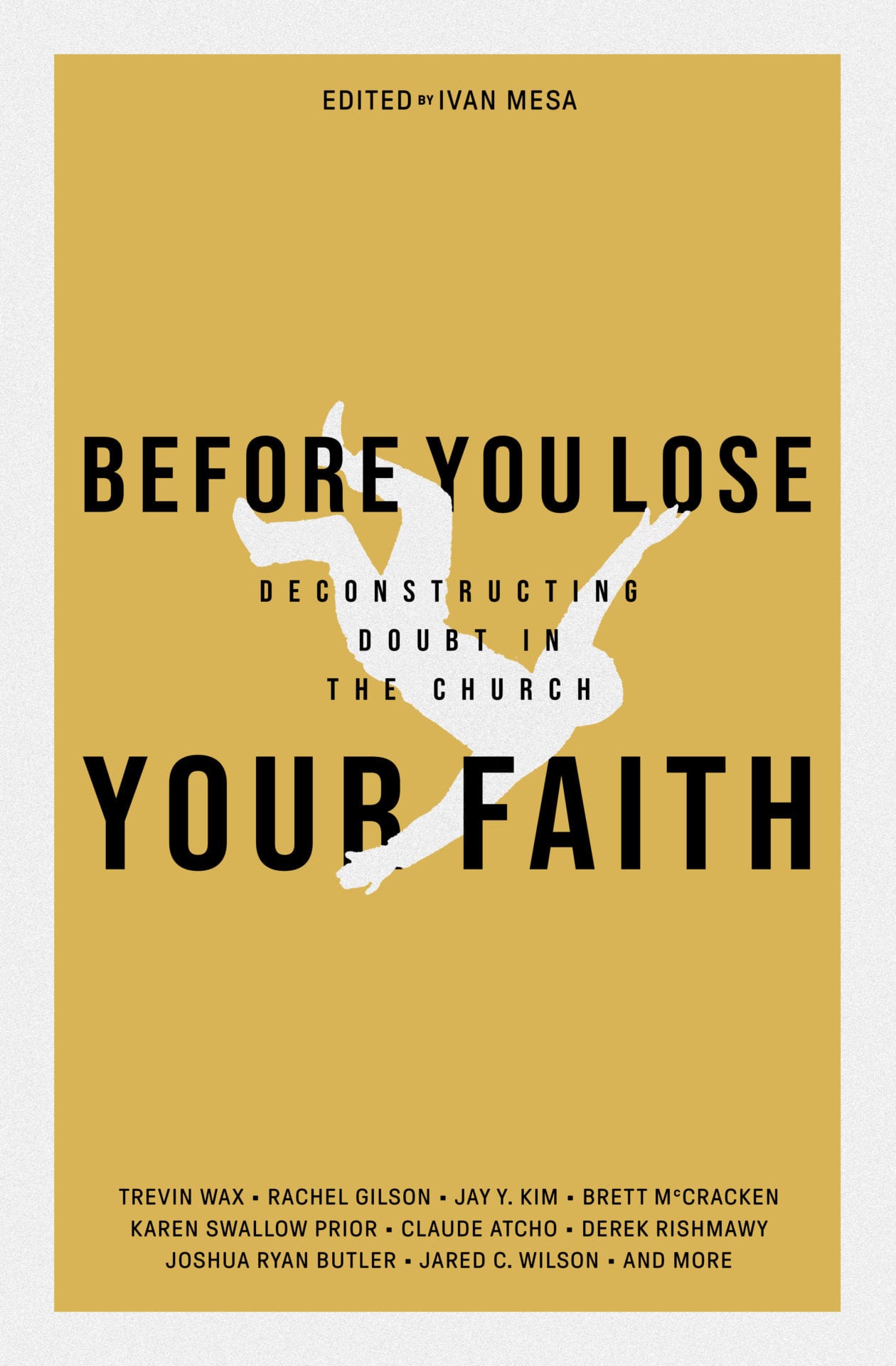Eric Alexander emphasizes Jesus’ encounter with the Samaritan woman. Alexander highlights the themes of spiritual thirst, true worship, and evangelism. He explains how Jesus reveals His identity as the Messiah and offers living water, which leads to the transformation of the woman’s life and her becoming a witness to her community. The sermon underscores the inclusive nature of Jesus’ ministry and the power of personal testimony in evangelism.
The following unedited transcript is provided by Beluga AI.
Ian McCall was a great journalist and a distinguished man in the newspaper world. He was the editor of a national newspaper here in Scotland and was later promoted to become the national editor in London of the same paper and a most influential voice of his time. He has not been remembered the way he deserves. He was also a committed Christian man and was in fact the session clerk of Sandford Henderson Memorial Church in Glasgow where my friend the Reverend George Phillip was minister for a long time.
When he went to London, Ian McCall rubbed shoulders with the great and the famous, with the wealthy and the influential, and he had all kinds of opportunities of observing people, and he was an acute observer of the world around him. He wrote after his time in London and talking about the remarkable people as he pondered whom everybody would have wanted to meet. But he said, the lives of most of these people I had to interview or get to know I discovered were like an onion.
You peel away layer after layer after layer, and in the end, there is nothing in it except a few tears. I rather think the woman who is the subject of this story, which we read in John 4, and which you will all be familiar with, I’m sure, would have recognized herself in that paragraph. The empty water jar that she brought with her to the well was almost a symbol of her life.
It’s very interesting that when she left and went back into the city in verse 28, she left her water jar behind her, and it was there as a kind of symbol of everything that her life added up to.
28 So the woman left her water jar and went away into town and said to the people, (John 4:28, ESV)
It stood at the end of every day, empty again, and she filled it yesterday and today and would do so also tomorrow. It was like a life, a story of a never-ending thirst.
I would think that at a certain time this woman had hoped, as so many people do, that love would be the answer to her aching spirit, and she had tried and tried and tried again, but on every occasion she discovered that nothing seemed to fill the aching void. Like most people she was looking probably for happiness. It was getting the right relationship which for her was vital.
And as she came out that day, most probably coming at noon because nobody else is likely to be foolish enough to expose themselves to that kind of heat, she doubtless felt that she had failed in everything that she tried. In a sense, this is the story that we read this morning of the relationship which changed everything for her. And I want simply today to trace with you this woman’s spiritual journey to Christ, because that is exactly what chapter four of John’s Gospel is.
With the result that her testimony was so effective in her neighborhood that many believed in Jesus and said, “Now we have heard for ourselves, and we know that this man really is the savior of the world.” But as we go through the chapter together, we will be following what is really the progress of a work of God. This woman’s conversion was not a sudden experience; it was something that had taken her through different stages as Jesus began to work in her life. And these stages I want to note with you this morning.
The first could be called a work of providence. A work of providence, I mean that divine providence which orders circumstances and sometimes greatly disturbs them, and then brings us into the path of someone in whom life is exactly what she wanted but had never found. Sometimes it happens when people are drawn to meet an individual.
Sometimes it happens when they are brought under a certain preaching or teaching of the scriptures but the basic fact is that throughout the whole of this account, the hand of God is on this woman and there is nothing therefore that is accidental or casual or luck whether good or bad. The hand of God is upon her. You see it from the very beginning in what John was telling the children.
He had to, the old versions say, he must needs go through Samaria, and of course, the simple fact is that he did not need to go through Samaria. If you notice that Judea, as John was telling us, is down in the south and Galilee is up in the north, and when he’s going from Judea to Galilee, he has to go through Samaria, which lies between the south and the north. Then geographically, it would have been a necessity, and many scholars have said, there’s nothing more to it than this.
Listen to one of our best New Testament scholars, Dr. Leon Morris, who says this: “The necessity for Jesus to pass through Samaria cannot be described as geographical, since the Jews had such a bad relationship with the Samaritans. Their route from Jerusalem to Galilee lay through the region beyond Jordan and to its east. This was longer, but it avoided the one thing they would not wish: an encounter with the Samaritans.”
Whatever the right view of that may be, the necessity which brought Jesus to this particular place at this particular time when the woman was there was the necessity of a divine providence. Someone has said, it is as though the right hand of God brought Jesus to this very place at this very time, and the left hand of God brought this woman to meet him and arrange the encounter. And I just want to say to you that that sort of thing still happens today.
I guess there are some of you sitting in the congregation this morning who can look back and see that providence at work in your life. You know that there was a certain time when God began to move, and he drew you in a particular way to a particular place. I remember standing at the door in our church in Glasgow, and as I shook hands with people, I recognized that this young man was a stranger. I said, “We’re delighted to see you,” which we really were.
And he said, “Well, all I can tell you is, it was no accident that I’m here, although I thought it was.” Frustratingly, I never saw him again, but he illustrates the very thing, which is here in this passage, a work of divine providence. And when you have some sense of this, don’t in God’s name shrug it off, because it could be the beginning of something quite extraordinary. But the second stage of this woman’s spiritual experience was a work not of divine providence, but of illumination, divine illumination.
It was the kind of illumination you associate not so much with the switching on of floodlights as with the dawn breaking in a new day. Do you frequently see the dawn breaking like that? You know what happens when it’s almost dark and you can scarcely see the time, and then the dawn begins to break and the light dawns, and you say, blessed be God, another morning. Well, that’s what you should say. But that’s the kind of light that dawned upon this woman. It was gradual.
And the focus of the illumination was on Jesus Himself, who He was, why He had come. You can almost trace the stages through the woman’s own lips. Do you notice in verse 9, she begins her assessment of Jesus by saying, “you are a Jew, and I am a Samaritan woman,” and she is impressed by the fact that He has come to ask her for a drink of water. But her assessment of Jesus was simply this: “you are a Jew.” Look at verse 12.
Then she begins to hazard the possibility that this man may be one of the greatest Jews and greater than the patriarchs like Jacob. Then she says in verse 12,
12 Are you greater than our father Jacob? He gave us the well and drank from it himself, as did his sons and his livestock.” (John 4:12, ESV)
And then in verse 19,
19 The woman said to him, “Sir, I perceive that you are a prophet. (John 4:19, ESV)
He had borne with his piercing eyes into the very heart of this woman’s life and some of the corruption that lay there.
And she said, I can see that you are a prophet. And then she wonders publicly in verse 29 when she goes back to her city, could this be the Christ? I think she had already almost made up her mind, but she has come beyond this stage.
9 The Samaritan woman said to him, “How is it that you, a Jew, ask for a drink from me, a woman of Samaria?” ( For Jews have no dealings with Samaritans.) (John 4:9, ESV)
And she asks, could this be the Christ?
29 “Come, see a man who told me all that I ever did. Can this be the Christ?” (John 4:29, ESV)
That kind of stage can last not just the minutes that it took this woman to have this conversation with Jesus. That can last through months.
I can still remember with great vividness the period in my own life when my brother had come home from the army, and something had happened in his life that had transformed him. He had not become religious, as my father said. He had been renewed by Jesus Christ into a new man with a new heart. And he was the first in our family. And I remember wondering, what is it that has happened to him? And then, who is this Jesus really that he is speaking so much about?
And you’ll notice that Jesus leads this woman with grace and gentleness, but also with a remarkable candour into the light. “If only you knew the gift of God who is before you, you would have asked him.” The gift of God, of course, was ultimately Jesus himself. And the living water is the eternal life he has come to bring by his death.
And Jesus presses upon this woman in verses 13 and 14, “that everyone who drinks this water will be thirsty again, but whoever drinks the water I give him will never thirst.”
Indeed, the water I give him will become in him a spring of water welling up to eternal life. Now, do you see how the woman is being led by Jesus from the well with its stagnant water to a spring? You know the difference, if you’ve ever lived in the country, between a well and a spring. The well has no life bubbling up in it.
You don’t see it except when you put the bucket down, responding in any sense to you, but when you have a spring and you suddenly discover this is living water, and the spring bursts up into life. You see, this is something so different, and Jesus is saying to the woman, “If you just knew who is speaking to you, you would ask him, and he would give you living water.” There is an enormous difference, my dear friends, between stagnant religion and the living water Jesus Christ gives to us to make us a fountain of life.
Now, here at this point, the woman says, “I have made up my mind, give me this water,” verse 15. The woman said to him, “Sir, give me this water so that I won’t get thirsty and have to keep coming here to draw water.” What a testimonial she is giving to the life she is living at this moment. She says, “I don’t want to go on thirsting again, and nothing that I have thus far found satisfies my longing soul. Give me this water.” And then there begins the third work.
There was a work of providence, there was a work of illumination, and there was a work of conviction. Do you notice? Because in verse 16, he almost appears to ignore her request. “Give me this water so that I won’t get thirsty.” And Jesus turns to the third work, which he is intent on fulfilling in her heart and life. And this is where it became really uncomfortable. But he did not just want to reveal the truth about himself. Probably before he could reveal the truth about himself, he had to reveal to her the truth about herself.
And he does so. “Go call your husband and come back,” in verse 16.
13 Jesus said to her, “Everyone who drinks of this water will be thirsty again, 14 but whoever drinks of the water that I will give him will never be thirsty again. The water that I will give him will become in him a spring of water welling up to eternal life.” 15 The woman said to him, “Sir, give me this water, so that I will not be thirsty or have to come here to draw water.” 16 Jesus said to her, “Go, call your husband, and come here.” (John 4:13-16, ESV)
And she found that he knew her through and through. That’s why she says, “I can see that you’re a prophet.” This was what she expected from such a person with the gift of prophecy, that they would be able to see through somebody’s disguises. Now, this, I say, is where the interview becomes uncomfortable for all of us. Don’t you find this?
There may have been times in your life, you may be saying, when I was young, when you found that this was not just ordinary church business or religiosity. This was something personal that was beginning to get through to you. And it became uncomfortable. It becomes uncomfortable in all sorts of ways. I know a young minister in Scotland who had a departure of three people who went out of the door who had sat in these pews, as they said, for forty years.
And they went out of the door in the middle of a sermon, and he assumed in his innocence they were sick. But when he got out, they were standing there, and they each said to him, almost one after the other, “How dare you call us sinners?” “Oh,” he said, “I don’t think I called you a sinner; I think it was Jesus who did that.” And they were deeply distressed. Now, the woman did exactly what people do today, you know. She was grossly uncomfortable.
And so she changed the conversation to a rather harmless religious and ecclesiastical subject, the division between denominations. Now that’s still a favourite with people. I would believe, were it not that there is a church at one end of the street that is called this and another at the other end of the street called that and they are both supposed to be Christian churches and when I see this religion dividing people from each other it turns me off in a big way.
And what she said to him was, “Sir, I can see that you are a prophet.” Verse 20, our fathers worshipped on this mountain. That was the mountain in Samaria called Gerizim.
19 The woman said to him, “Sir, I perceive that you are a prophet. 20 Our fathers worshiped on this mountain, but you say that in Jerusalem is the place where people ought to worship.” (John 4:19-20, ESV)
So she wanted to have a religion discussion. And there are so many people who are very content to do that, to discuss things with this religious figure, as she now assumed Jesus to be. But the one thing she didn’t want was that he should probe into her personal and private life.
And he was doing so when he said, go call your husband. And she found him extraordinarily serious. And this is the moment in this encounter, as it comes in every encounter with Jesus, when things become uncomfortable. Jesus says, I know that you have no husband, but you have had five husbands, and the man you now have is not your husband. What you have just said is quite true. And the woman found she could not divert Jesus from the subject. It wasn’t actually the subject that was a diversion.
It was the woman’s motive that was the diversion. The subject was actually the climax of the interview. It was this that Jesus really wanted to speak to her about, because what he wanted to do was to bring her into the relationship with God her father as a worshipper. Now that’s the end of every such approach of God to people like this. That’s the climax of every kind of experience as there is a work going on in this woman’s heart.
Jesus says to her,
23 But the hour is coming, and is now here, when the true worshipers will worship the Father in spirit and truth, for the Father is seeking such people to worship him. (John 4:23, ESV)
Now, there’s another revelation from Jesus. Actually, he said, “Through this whole time we’ve been together, and you haven’t given me the drink of water yet. Through this whole time, it’s not just that I’ve been seeking to get to know you.”
God the Father, the creator of the universe, the eternal God, has been here because he’s wanting to make you a worshipper. Now, you know, I think she had put her foot right into it when she asked him about worship, because the thing that really was going to come to the crux of the matter with Jesus and the woman from Samaria was not the history of the Jews and the Samaritans. The Samaritans had abandoned the greater part of scripture in the course of their history and therefore they believed very little of the biblical revelation.
But what she didn’t want to hear was about worship. And if you just think of it, this woman was a great example of the tendency that we all of us have to worship at the wrong altar. You know, we are all worshippers, my dear friends. We don’t select not to be worshippers. We all worship somehow or other. The question, as Jesus was putting it to this woman, was not where do we worship, but whom do we worship.
And that was the problem for the woman, because she had fallen into that greatest sin of worshipping and serving herself rather than God. And that’s our tendency. Paul puts it this way, and it’s so exciting that it would make you pull the light down, but Paul puts it this way, they worshipped and served the creature rather than the Creator. And this is what lies deep in the human heart. This is the human tendency, my friends, not to be irreligious. We are incurably worshippers. And sometimes it’s just the latest toy we have.
If you’re a grown-up man, it may be a car. It may be your house if you’re a lady. It may be all kinds of different things, but it’s whom you worship that is the vital thing. Because God is not seeking people for pews. He is seeking worshippers who have allowed the living God to break open their hearts and reveal their sin and their failure and bring them to fall at the feet of this Saviour who gladly says, to this woman, “I who speak to you am He,” in verse 26.
26 Jesus said to her, “I who speak to you am he.” (John 4:26, ESV)
And to say, Lord, you are the one I’ve been seeking, although I had no idea that I was seeking you. And I cast myself, body, soul and spirit, mind and heart and affection, I cast it all down before you. And name you as my only Saviour. I worship you for the salvation you have obtained in Jesus Christ. And I receive it with all my heart and receive you as my Saviour. The Father is seeking worshippers.
And I think the woman might have said, if she had been in a large gathering, “Oh yes, I will be very happy to be a worshipper of God, count me in.” But when she’s alone, and there’s nobody there but Jesus, and Jesus is saying, “Who are you worshipping?” It’s a very different matter. But the woman goes back to the people she’s with, and says, “Come and see a man who told me everything I did. Could this be the Christ?” Now, I think there was another work that was going on at that time.
Besides a work of providence, and a work of illumination, and a work of conviction, there was a work of grace. Did you notice that these people recognized something had happened to this woman? We no longer believe just because of what you said. Now we have heard for ourselves, and we know this man really is the savior of the world, and I think the indication is that the woman had come to that conviction, and she had become a worshiper.
One thing that’s absolutely certain and inescapable is that you can never worship yourself and worship God at the same time. So she went back and left her water pot there, and said, “Come and see.” Now, I wonder this morning, in your encounter with Jesus Christ where you are, the hand of providence without a doubt upon you, the work of illumination began maybe a long time ago. A work of conviction, perhaps more recently. But God wants to complete this work of grace and make you into a worshiper.
And there is nothing this morning, absolutely nothing that he would rather do.
Free Book by TGC: ‘Before You Lose Your Faith’
 Many young people are walking away from Christianity—for reasons ranging from the church’s stance on sexual morality, to its approach to science and the Bible, to its perceived silence on racial justice.
Many young people are walking away from Christianity—for reasons ranging from the church’s stance on sexual morality, to its approach to science and the Bible, to its perceived silence on racial justice.
TGC’s book Before You Lose Your Faith: Deconstructing Doubt in the Church is an infusion of hope, clarity, and wisdom in an age of mounting cynicism toward Christianity.
For anyone entering college or the workplace and looking for a timely reminder of why Christianity is good news in a skeptical age, make sure to get your FREE ebook Before You Lose Your Faith today!



















